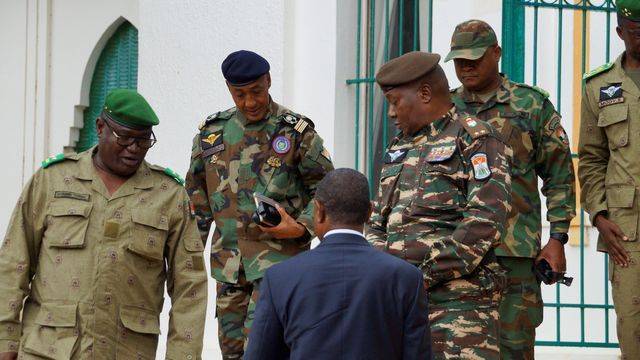The military council that seized power in Niger during last month's coup announced that it will prosecute the ousted president, Mohamed Bazoum, on charges of high treason related to his dealings with foreign leaders and international organizations. Colonel Amadou Abdrahmane, the council's spokesman, stated in an announcement broadcast on state television late Sunday that "the military council has gathered the necessary data to prosecute the ousted president... for high treason and undermining the internal and external security of Niger."
Residents in Niamey, many of whom expressed deep disappointment with Bazoum's government and support for the coup leaders, stated that they back the prosecution of the deposed president. Elyassou Abou Bakr remarked, "There is no surprise in this because you have heard various statements and appeals in which the international community has been called not just to impose sanctions but also to intervene militarily in the territory of Niger." He added, "What we hope is that this is done in accordance with the law, with respect for all procedures and appointing judges who have the necessary skills to carry out the task."
**ECOWAS Response**
The Economic Community of West African States (ECOWAS) announced on Monday that it was shocked by the military council's efforts in Niger to accuse the democratically elected president Mohamed Bazoum of high treason. They added in a statement that this step represents a form of provocation by the coup leaders in Niger and contradicts their reported willingness to reach a peaceful resolution to the current crisis.
Spokesman Abdrahmane claimed there is a disinformation campaign against the military council attempting to "undermine any negotiated solution to the crisis to justify military intervention... in the name of ECOWAS." The military council rejected several diplomatic missions in the first two weeks following the coup, although it indicated a potential willingness to communicate after ECOWAS stated it would "activate" forces on standby for possible deployment in Niger.
On Saturday, the ECOWAS Parliament expressed its desire to send a committee to meet with the military council in Niamey, but the proposed timing for this mission remains unclear. The African Union, the European Union, the United States, and the United Nations have all expressed concern about the conditions of Bazoum's detention. Bazoum's political party stated that the ousted president's family has had no access to running water, fresh food, or medical visits, and Bazoum told Human Rights Watch that his son needs to see a doctor due to a serious heart condition.
The African Union Peace and Security Council, composed of 55 countries, is also expected to meet today to discuss the situation in Niger, indicating a high level of concern over the potential repercussions of the seventh coup in West and Central Africa in three years. U.S., French, German, and Italian troops are stationed in Niger, where local groups linked to al-Qaeda and ISIS have killed thousands and displaced millions. Meanwhile, Russian influence is increasing as insecurity worsens and democracy declines, with leaders seeking new partners to restore order. Western powers fear the potential rise of Russian influence if the military council in Niger follows the examples of Mali and Burkina Faso, where forces from the former colonial power France were ousted following coups in those countries.




